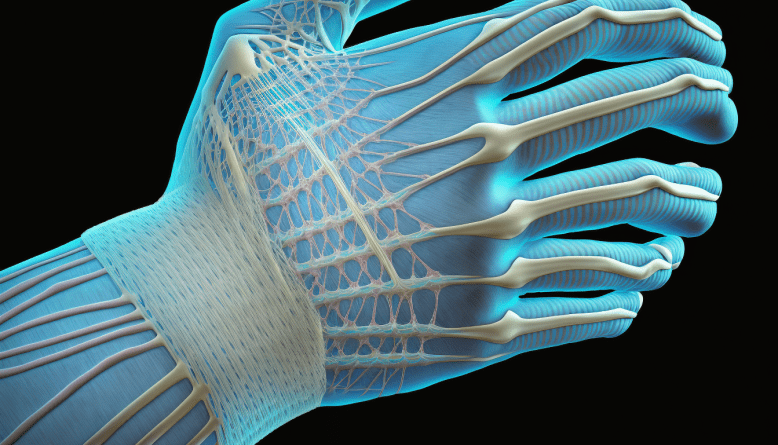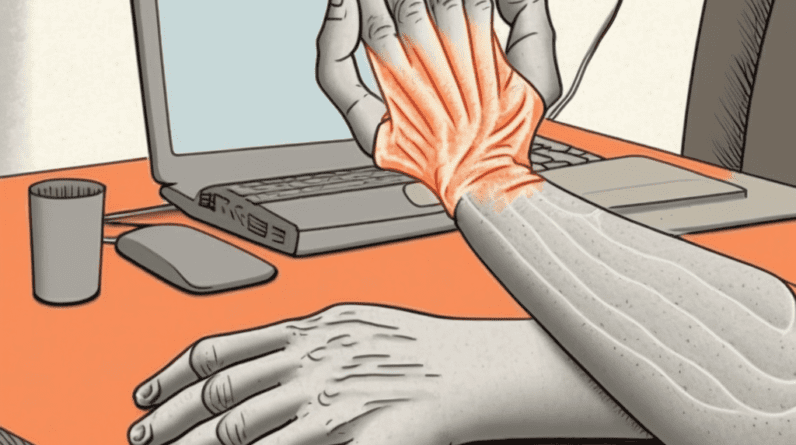Carpal Tunnel Syndrome (CTS) is a condition that affects millions of people worldwide. It is caused by the compression of the median nerve, which runs through the carpal tunnel in the wrist. The symptoms of CTS include pain, numbness, tingling, and weakness in the hands and wrists.
If you suffer from CTS, you may be wondering if there are any effective treatments available to relieve your symptoms. In this article, we’ll explore some of the most common natural remedies and medical options for treating CTS.
Natural Remedies for Carpal Tunnel Syndrome Treatment
Many people prefer to start with natural treatments for CTS, as they are often less invasive and have fewer side effects than medical treatments. Here are some of the most effective natural remedies for relieving carpal tunnel symptoms:
1. Rest and immobilization: One of the most important things you can do for CTS is to give your hand and wrist time to rest and heal. This may involve wearing a splint or brace to immobilize the wrist and avoid aggravating the median nerve.
2. Hot and cold therapy: Applying heat or cold to the affected area can reduce pain and inflammation. Try alternating between a hot compress and a cold compress for 15-20 minutes at a time.
3. Exercise and stretching: Specific exercises and stretches can help strengthen the muscles and tendons in your wrist and hand, reducing pressure on the median nerve. A physical therapist or occupational therapist can help you develop a personalized exercise plan.
4. Massage therapy: Deep tissue massage can help relax tense muscles and improve blood flow to the affected area. Be sure to choose a licensed massage therapist with experience in treating CTS.
5. Herbal remedies: Certain herbs, such as ginger, turmeric, and devil’s claw, have anti-inflammatory properties and may be helpful in reducing CTS symptoms. Always talk to your healthcare provider before trying any new herbal remedies.
Medical Options for Carpal Tunnel Syndrome Treatment
If natural remedies don’t provide enough relief, or if your CTS is severe, your healthcare provider may recommend medical treatments. Here are some of the most common medical options for treating CTS:
1. Pain medications: Over-the-counter or prescription pain medications can help reduce pain and inflammation in the affected area.
2. Corticosteroid injections: Corticosteroids are powerful anti-inflammatory medications that can be injected directly into the wrist to reduce swelling and relieve symptoms.
3. Surgery: In severe cases of CTS, surgery may be necessary to relieve pressure on the median nerve. The most common surgical procedure is decompression surgery, in which the carpal ligament is cut to release pressure on the nerve.
4. Alternative therapies: Some people find relief from CTS symptoms through alternative therapies such as acupuncture or chiropractic care. Always choose a licensed and experienced practitioner.
Carpal Tunnel Syndrome Prevention
In addition to treating your CTS symptoms, it’s important to take steps to prevent the condition from recurring. Here are some tips for preventing CTS:
1. Take frequent breaks: If your job involves repetitive hand movements, such as typing or assembly line work, take frequent breaks to rest your hands and wrists.
2. Maintain a healthy weight: Carrying excess weight can put added pressure on your wrists and exacerbate CTS symptoms.
3. Practice good posture: Poor posture can strain the muscles and tendons in your wrist and contribute to CTS. Sit up straight and use proper ergonomics at your workstation.
4. Wear supportive gloves: If you engage in activities that require a lot of hand and wrist movement, such as gardening or woodworking, wear gloves that provide extra support and cushioning.
Conclusion
With the right treatment and preventative measures, CTS doesn’t have to be a debilitating condition. Whether you choose natural remedies or medical treatments, be sure to work with your healthcare provider to develop a personalized treatment plan. With time and patience, you can reduce your CTS symptoms and improve your quality of life.





